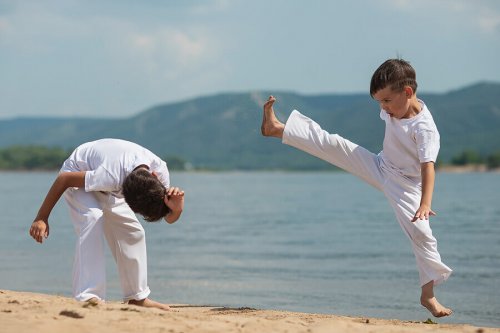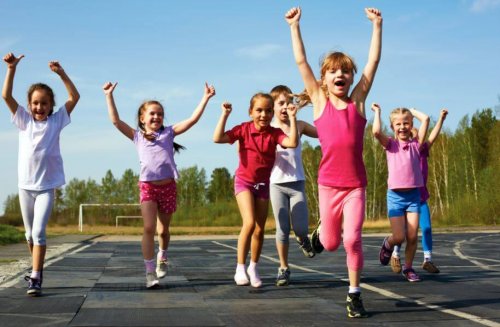Regulations for Sports Schools

Sports schools are a fundamental pillar for the promotion of physical activity and sports in many countries. That’s especially true when we’re talking about local sports schools.
In practice, local schools are the basic organizational unit of a country’s sports system. These entities allow millions of children and teenagers to dare to dream of a career in professional sports.
Nevertheless, most people don’t know much about the regulations that govern these types of schools. That goes for both public and private sports schools. Most of the time, you find the legal aspects of these institutions dispersed in different laws and ordinances. What’s more, these can exist at both the national and regional levels.
Unfortunately, the same thing goes for Spain. As we’ll see in the rest of this article, the absence of a legal framework for these schools can be problematic. It might make it more difficult to develop the potential of sports schools. When officials use these appropriately, they can be great sources for the discovery and encouragement of new talent for national sports leagues.

Let’s, first of all, try to understand what sports schools actually are. Let’s also talk about why they’re so important for promoting sports.
Sports schools: definitions and functions
Generally speaking, you can think of sports schools as educational centers whose activities center around sports. This also involves other activities of a recreational nature. These activities should help with the development of physical, cognitive, and social skills.
While most of these are open to anyone in the community, they generally do special work with children and teenagers. That way, the youth can get started in sports. It also helps them find a place of belonging within society.
Likewise, its main objective isn’t to get certain results or achievements in sports competitions. Its first task is to transmit practical, technical, and tactical concepts. These should help young people develop throughout their life. It should transfer over to their personal and professional lives whether they come to play sports professionally or not.
It also focuses on education in sport. Another one of its main objectives is the incorporation of physical activity into children’s lives.
Main contributions of sports schools
The main contributions of sports schools are, effectively, those connected to the use of the power of physical training to shape young minds. That’s why its community work generally focuses on the following foundations:
- Education through physical and recreational sports activities
- Generation of a “state of sports participation.” This should promote the creation of new and better habits in community members. It should pay special attention in this regard to the youth. Of course, it’s important to involve the parents and family members as well.
- Stimulation of possibilities and growth through children’s efforts in different sports. They should do it by securing their well-being and appropriate development.
- Working together and offering help to local sports clubs and associations. They should be able to encourage the participation of the community and spread the word about sports events and initiatives more effectively.
The absence of a single legal framework in Spain
As we were saying before, there’s no single legal framework in Spain for this at the national level. Although the so-called Sports Law of 1990 is currently in effect, this law doesn’t deal specifically with this type of institution. Nevertheless, it does pave the way for such schools in the public and private spheres.

In each autonomous community, you can find different regulations about using local facilities for recreational and sports activities. There are also different guidelines for their safe and sustainable practices.
Aside from that, these regulations complement the rules and guidelines in many other localities. Many municipal regulations already deal with sports facilities, recreational activities, and sporting events or shows.
An example from Madrid
In Madrid, for example, they have the Regulations for the Utilization of Municipal Sports Installations and Services. Its scope of application covers:
“All municipal sports facilities. That includes those managed directly as well as those managed indirectly through authorized public or private entities.”
This text is a complement to that which is established on the regulations regarding the hygienic and sanitary conditions of municipal pools. It also covers the area regulations on consumers, users, and recreational shows in the municipal area.
To sum it all up, in order to come to know all of the specific regulations on sports schools in your region, we recommend you look into your local regulations. You can usually find these on the internet.
Sports schools are a fundamental pillar for the promotion of physical activity and sports in many countries. That’s especially true when we’re talking about local sports schools.
In practice, local schools are the basic organizational unit of a country’s sports system. These entities allow millions of children and teenagers to dare to dream of a career in professional sports.
Nevertheless, most people don’t know much about the regulations that govern these types of schools. That goes for both public and private sports schools. Most of the time, you find the legal aspects of these institutions dispersed in different laws and ordinances. What’s more, these can exist at both the national and regional levels.
Unfortunately, the same thing goes for Spain. As we’ll see in the rest of this article, the absence of a legal framework for these schools can be problematic. It might make it more difficult to develop the potential of sports schools. When officials use these appropriately, they can be great sources for the discovery and encouragement of new talent for national sports leagues.

Let’s, first of all, try to understand what sports schools actually are. Let’s also talk about why they’re so important for promoting sports.
Sports schools: definitions and functions
Generally speaking, you can think of sports schools as educational centers whose activities center around sports. This also involves other activities of a recreational nature. These activities should help with the development of physical, cognitive, and social skills.
While most of these are open to anyone in the community, they generally do special work with children and teenagers. That way, the youth can get started in sports. It also helps them find a place of belonging within society.
Likewise, its main objective isn’t to get certain results or achievements in sports competitions. Its first task is to transmit practical, technical, and tactical concepts. These should help young people develop throughout their life. It should transfer over to their personal and professional lives whether they come to play sports professionally or not.
It also focuses on education in sport. Another one of its main objectives is the incorporation of physical activity into children’s lives.
Main contributions of sports schools
The main contributions of sports schools are, effectively, those connected to the use of the power of physical training to shape young minds. That’s why its community work generally focuses on the following foundations:
- Education through physical and recreational sports activities
- Generation of a “state of sports participation.” This should promote the creation of new and better habits in community members. It should pay special attention in this regard to the youth. Of course, it’s important to involve the parents and family members as well.
- Stimulation of possibilities and growth through children’s efforts in different sports. They should do it by securing their well-being and appropriate development.
- Working together and offering help to local sports clubs and associations. They should be able to encourage the participation of the community and spread the word about sports events and initiatives more effectively.
The absence of a single legal framework in Spain
As we were saying before, there’s no single legal framework in Spain for this at the national level. Although the so-called Sports Law of 1990 is currently in effect, this law doesn’t deal specifically with this type of institution. Nevertheless, it does pave the way for such schools in the public and private spheres.

In each autonomous community, you can find different regulations about using local facilities for recreational and sports activities. There are also different guidelines for their safe and sustainable practices.
Aside from that, these regulations complement the rules and guidelines in many other localities. Many municipal regulations already deal with sports facilities, recreational activities, and sporting events or shows.
An example from Madrid
In Madrid, for example, they have the Regulations for the Utilization of Municipal Sports Installations and Services. Its scope of application covers:
“All municipal sports facilities. That includes those managed directly as well as those managed indirectly through authorized public or private entities.”
This text is a complement to that which is established on the regulations regarding the hygienic and sanitary conditions of municipal pools. It also covers the area regulations on consumers, users, and recreational shows in the municipal area.
To sum it all up, in order to come to know all of the specific regulations on sports schools in your region, we recommend you look into your local regulations. You can usually find these on the internet.
All cited sources were thoroughly reviewed by our team to ensure their quality, reliability, currency, and validity. The bibliography of this article was considered reliable and of academic or scientific accuracy.
- Comunidad de Madrid. Reglamento de Utilización de las Instalaciones y Servicios Deportivos Municipales. 2012. Extraído de: https://sede.madrid.es/FrameWork/generacionPDF/ANM2012_62.pdf?idNormativa=f147023febfda310VgnVCM1000000b205a0aRCRD&nombreFichero=ANM2012_62&cacheKey=19
- Ley del deporte. Extraído de: https://www.csd.gob.es/es/csd/organizacion/legislacion-basica/ley-del-deporte
This text is provided for informational purposes only and does not replace consultation with a professional. If in doubt, consult your specialist.








